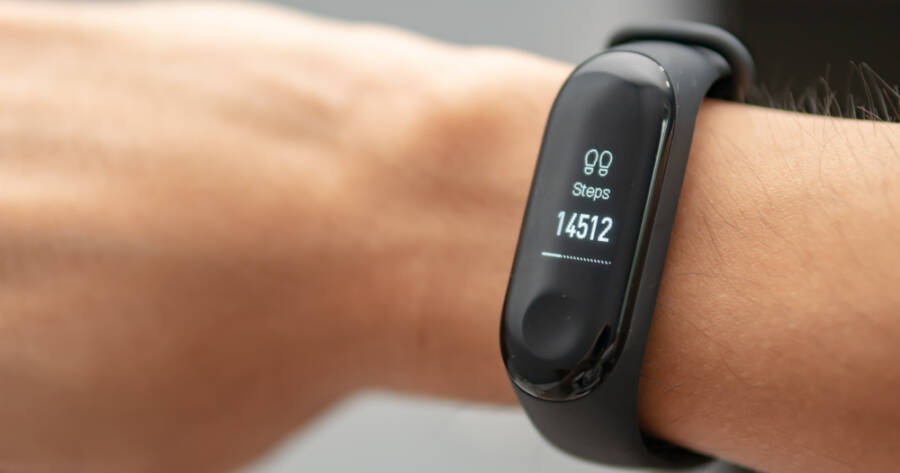When it comes to tracking fitness progress, wearable technology has become increasingly popular. Step counters and smartwatches are among the top contenders, each offering unique features to help you stay on track with your fitness goals. But which one is the best for you? Now you can compare the two options to make an informed choice for your lifestyle and needs.
Step Counters: Simplicity Meets Functionality
Step counters, often referred to as activity trackers, are wearable devices designed primarily to track the number of steps you take throughout the day. These devices tend to be more straightforward and are ideal for those who want a no-frills option for monitoring daily physical activity.
The simplicity of step counters makes them user-friendly for people who may not need additional features or prefer a less complicated device. Most step counters are small, lightweight, and easy to wear, often resembling a clip-on device or wristband. Some even focus on the basic functions of counting steps, tracking calories burned, and monitoring distance covered.
For individuals who have specific fitness goals related to walking or running, step counters can be a great option. They provide clear, easy-to-understand data that encourages movement and offers motivation to reach step goals. Since step counters focus on the basics, they can be more affordable than smartwatches, making them a popular choice for budget-conscious users.
Smartwatches: The All-In-One Fitness and Lifestyle Device
Smartwatches, on the other hand, offer a wide array of features that go beyond simple step counting. They are designed to be multifunctional devices, often equipped with fitness tracking features like heart rate monitoring, GPS, sleep tracking, and even the ability to track specific workouts such as cycling, swimming, or weightlifting.
Smartwatches provide a more comprehensive overview of your health and fitness, which can be beneficial if you are working towards more specific or varied fitness goals. For example, if you are training for a marathon, a smartwatch with GPS tracking can help you measure your runs, while also offering heart rate data to ensure you are staying within your target zone.
Another advantage of smartwatches is their integration with smartphones. Many smartwatches allow you to receive notifications, answer calls, and send messages directly from your wrist. This makes them not only a fitness tracker but also a tool for managing your lifestyle on the go.
Which One Is Best for Your Fitness Goals?
Deciding whether a step counter or a smartwatch is better for your fitness goals largely depends on the level of detail you want from your tracking device. If your primary focus is simply increasing your daily step count and staying active throughout the day, a step counter may be the best option for you. These devices excel at offering basic metrics like steps, distance, and calories burned without overwhelming you with additional features.
However, if you are looking for a more in-depth fitness tracker that can monitor your heart rate, track specific types of exercise, and provide valuable insights into your overall health, a smartwatch may be the better choice. Smartwatches offer much more versatility, making them ideal for individuals who want to track a variety of activities or prefer more personalized data and analysis.
Battery Life and Durability: Consider Your Needs
One of the biggest differences between step counters and smartwatches is their battery life and durability. Step counters typically have longer battery life, with some devices lasting weeks on a single charge. This is especially advantageous for people who don’t want to worry about recharging their device regularly.
In contrast, smartwatches generally require more frequent charging, sometimes every day or two, depending on how heavily they are used. However, this is often a trade-off for the additional features that smartwatches provide. For example, GPS, heart rate monitoring, and other advanced sensors consume more power, leading to shorter battery life compared to the simplicity of step counters.
In terms of durability, both types of wearables are designed to withstand daily use, but smartwatches often come with additional features like water resistance for swimming and shockproofing for high-impact activities. Step counters, while durable, might not offer the same level of protection, especially for those who engage in extreme sports or activities.
Style and Comfort: What You Prefer to Wear Matters
When choosing between a step counter and a smartwatch, comfort and style should also be considered. Step counters are usually smaller, lighter, and more compact, making them less noticeable on your body. Many are designed to be worn on a belt or clipped onto clothing, which some users find more comfortable than wearing a bulky smartwatch on their wrist.
Smartwatches, while a bit larger, are often designed with a sleek, fashionable look, and they come in a variety of styles and materials to match personal preferences. For some, the added functionality of a smartwatch can make the device feel more like an accessory, while others might find it cumbersome if they prefer minimalistic or more discreet wearables.
Choose What Fits Your Lifestyle Best
Ultimately, both step counters and smartwatches offer valuable benefits depending on your fitness goals and lifestyle. Step counters excel in simplicity, affordability, and ease of use for those looking to track daily activity. They are perfect for individuals who are focused on improving general fitness or meeting step goals.
On the other hand, smartwatches provide a wide range of features, from heart rate monitoring to GPS tracking, making them ideal for those with specific fitness targets or who want a comprehensive overview of their health.

